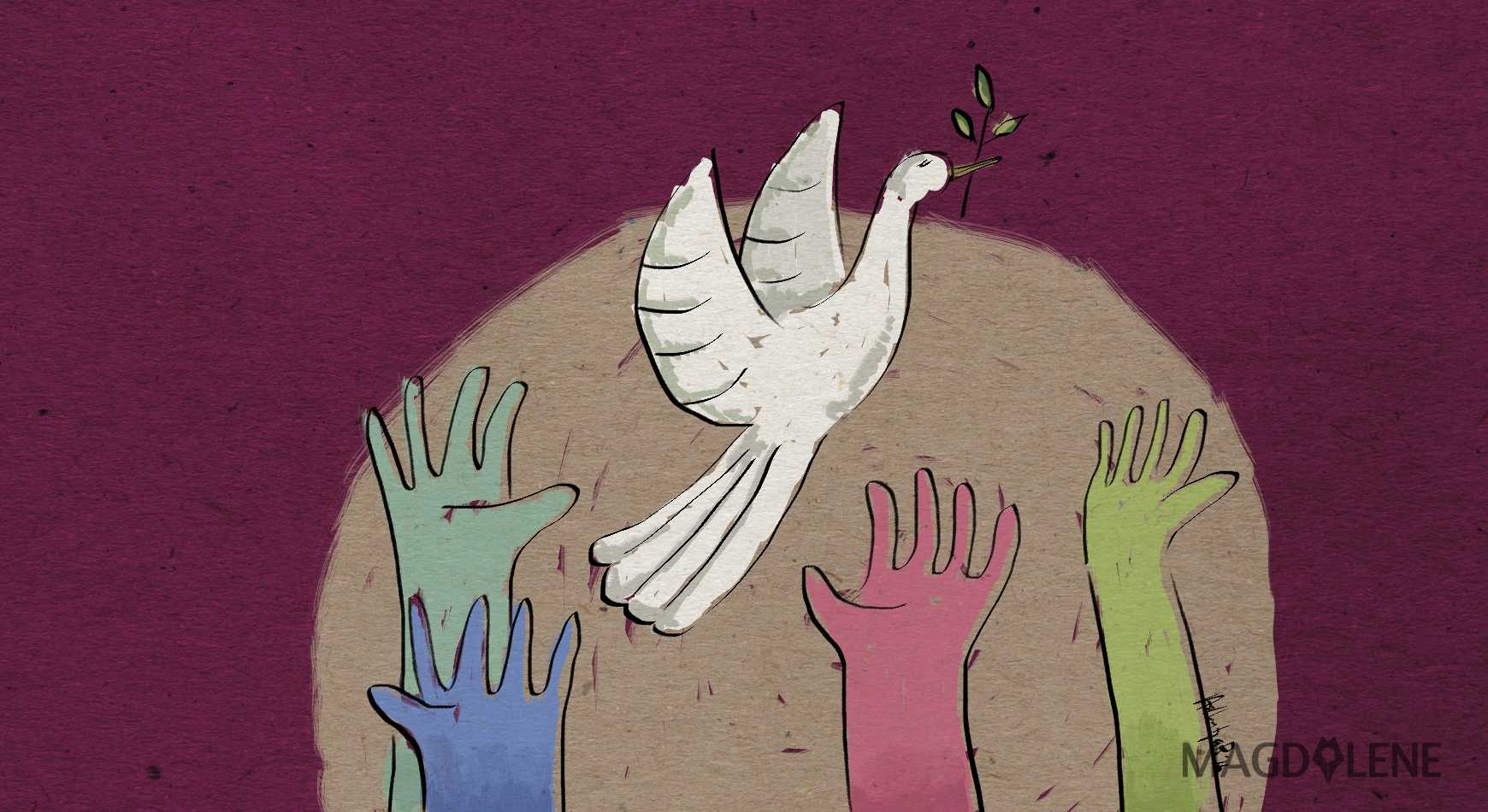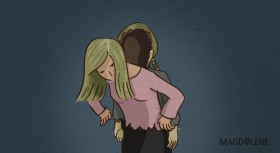Eliza Vitri Handayani’s novel From Now On Everything Will Be Different is a study of relationship, freedom and identity in post-Reformasi Indonesia. It shows the complex reality of a nation in transformation, and how it affects its characters’ internal landscape.
When I finished talking, Dad looked me right in the eyes and said, “But they deserved it, didn’t they? They’re Chinese after all.”
He might as well have punched me in the gut.
I suspect he said it to piss me off, to put me in my place for daring to try to teach him something, but still... He knew I was talking about a friend, not some news story!
I stormed out of there so fast, but I know no matter how far I go, I can never escape him and what he is – my father, my origin. The seeds of hate run through my veins. A history of hatred runs through our country. What does that make me? What does that make us? - Julita’
Singer and activist Kartika Jahja and actress Dinda Kanyadewi performed a dramatic reading of the book’s excerpts, including the above passage last week, during the official launch of the book which was translated into English and published last year. The Indonesian version of the book was published two years ago.
Eliza said the English version was thicker because she added some contexts that were not written on the Indonesian version for the wider international audience .
Amidst the setting of post-New Order regime Indonesia, the novels tells the story of two independent and rebellious characters who came of age in the Reformasi period. Both Rizky and Julita have critical views and strong opinions about the world surrounding them.
Eliza chose letters as a medium to introduce her characters. By doing so, Rizky and Julita could talk about themselves more freely, she said.
“Friendship and love between ethnicities and religions are still rarely discussed in Indonesian literature, and my characters were among those people who are often misunderstood and labelled as immoral. That is why I want them to convey their views directly, not through narrative but through letters. I also think that this represents the ultimate story of our generation.”
 The novel explores a sense of freedom.
The novel explores a sense of freedom.“My generation grew up restricted and repressed, which is why we should make the best of this opportunity to break free, live our lives, love as we choose and work as we choose,” she said at the launch, where she wore a dress made of scrap papers from her book draft.
She highlighted the search of identity in the era after the New Order regime: “For me, it means reaching for freedom, not only to fight against the repressive regime and unfair treatments, but also to be ourselves, to be who we are.”
Love, politics and sex – Eliza admits that the three cannot be separated.
“I believe that the search of freedom is closely related to the search of identity, while identity is always tangled to the search of love. Because I think that once we find somebody who knows us inside and out, that is when we can finally feel freedom.”
Even in present-day Indonesia, freedom is still elusive. In fact, recalling her recent experience with censorship at the Ubud Writers and Readers Festival (UWRF) last year, it’s even more crucial that we keep on the fight for it.
Last year, she had to cancel the launching of her book at UWRF after warnings by the local police because it discusses the issue of 1965 anti-communist massacre. Not able to introduce her book, she sold protests T-shirts with written excerpt from the novel, so that people would still be able to catch a glimpse of the book’s content.
 “Many may still wonder whether ‘reformasi’ has died. Just like me, people may feel anxious about censorship, fear and ignorance regarding sensitive issues like ’65, LGBT, and women sexuality. But don’t forget that we still have many voices that try to enlighten and that support equality for all,” she said.
“Many may still wonder whether ‘reformasi’ has died. Just like me, people may feel anxious about censorship, fear and ignorance regarding sensitive issues like ’65, LGBT, and women sexuality. But don’t forget that we still have many voices that try to enlighten and that support equality for all,” she said. “Reformasi began in ’98 because we all had the courage, so we ought to keep it alive. Freedom, both the politics and the personal, won’t be given to for free. We need to fight for it and defend it,” she added.
Asked whether she would write on less sensitive issues in the future to avoid censorship, Eliza firmly answered, “I won’t step back even a bit. I promised myself I will always follow my vision, my truth.”
For her readers she expressed her hopes: “I want people to be inspired. I know my characters are not what you consider strong role models, but I want my readers to see the reflection of parts of themselves, because, as a reader, that’s what I would expect – to have somebody understand me.”
“By voicing what is repressed – that is the way to no longer feel alone. We don’t need to try to be somebody else in order to be loved, for we will eventually be accepted just by being our true self.”
Read Ayunda’s piece on a controversy over a university’s research group on sexuality.









Comments